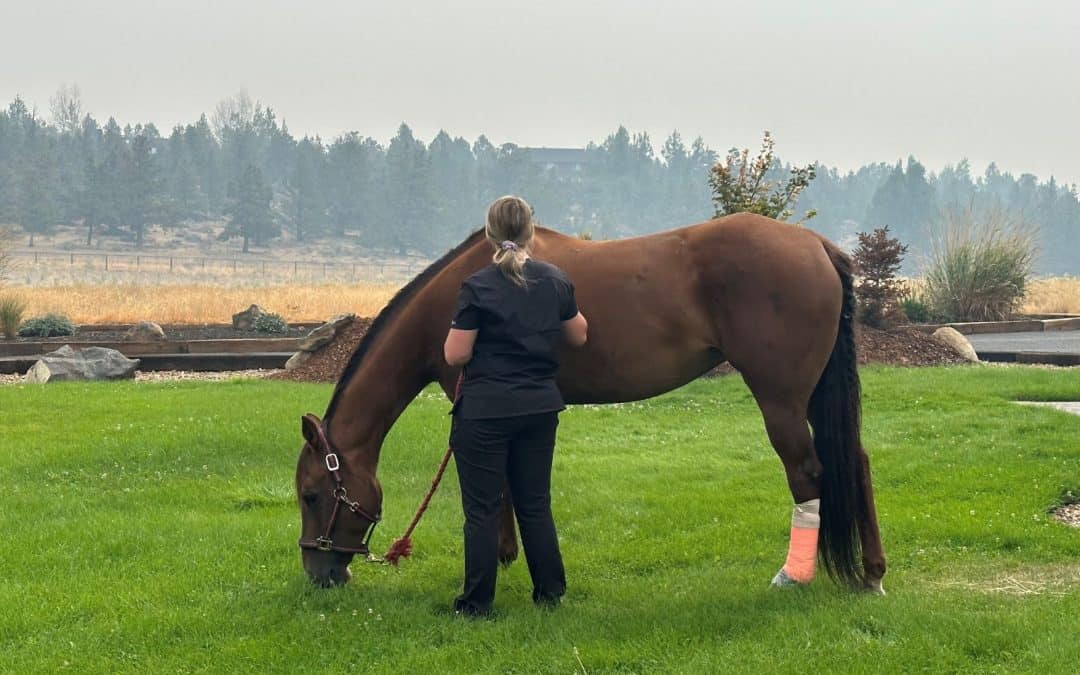Wildfire season is back, so it’s time once again to consider how to protect your horse from respiratory damage caused by smoke inhalation.
Horses’ lungs are huge—the average horse’s lung volume is 55 L, compared to a human’s 6 L. A horse exercising heavily can intake as much as 2,250 liters of air per minute, and the particulate matter within that huge volume of air can lodge within the bronchioles and lung alveoli, causing inflammation and sometimes pneumonia.
Our goal in limiting exercise is to minimize the amount of particulate matter allowed to lodge in the lungs during these poor air quality periods and to give horses time to fully clear it before returning to work.
Some handy rules of thumb (but keep in mind there’s not a lot of data to support exact numbers so you may see some variation in recommendations):
- Avoid trot and canter/lope exercise when air quality exceeds 150 AQI.
- Avoid any forced exercise over 200 AQI.
- For severe smoke inhalation, as in the case of horses literally in the midst of wildfires, four to six weeks of rest is recommended.
- For each day of AQI >150, horses should receive one day of rest *after* the air quality returns to <150 before returning to exercise, ideally with a minimum break of seven days.
- Return to full work levels should be gradual over an additional one to two weeks depending on the duration of smoke exposure.
- Horses with underlying respiratory disease such as asthma (“heaves”/ inflammatory airway disease/exercise induced pulmonary hemorrhage) should be treated more conservatively and not exercised when air quality exceeds 100 and should be given longer rest periods before resuming work.
- What else can you do to support your horses’ respiratory systems?
- Reduce other causes of poor air quality such as dust by spraying down stalls and paddocks with water and soaking hay.
- Provide nutritional support to combat inflammation with antioxidants such as omega-3 fatty acids and natural vitamin E (available via our online pharmacy). Aleira is one commercial product with good research showing reduction of airway inflammation.
- Make sure horses are well-hydrated so that their natural clearance systems allow mucus to transport the particles back up the trachea and out of the respiratory tract. Remember that smoke can permeate their water sources, so it’s a good idea to change these more frequently to reduce the smoky taste that can reduce drinking.
- You can consider nebulization with sterile saline to help liquify mucus in the airways, but please avoid using any other substances in the nebulizer unless it’s prescribed by your veterinarian.
Give us a call if your horse seems to be struggling with an elevated resting respiratory rate, is coughing or seems lethargic or has a reduced appetite and otherwise try to sit tight to give those lungs time to recover.
